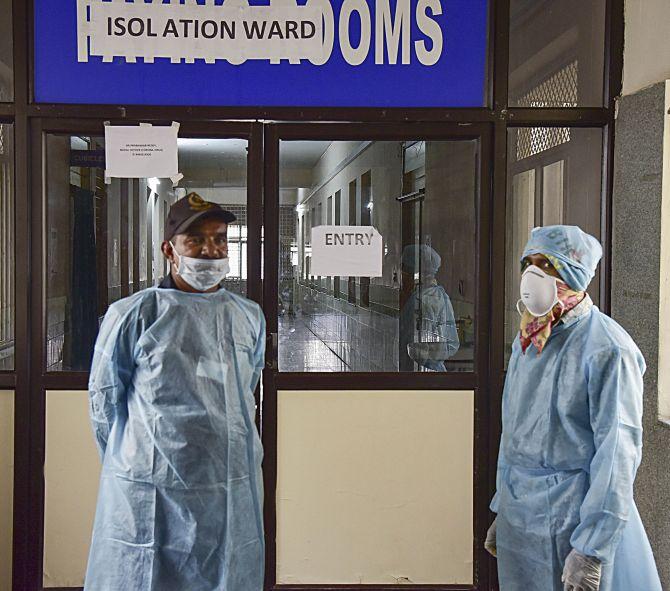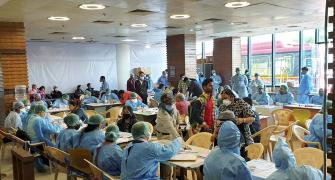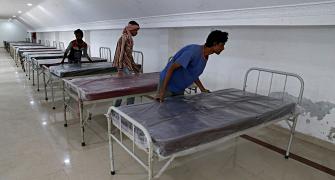The Supreme Court on Monday directed all states and Union Territories to set up high level committees to determine class of prisoners who could be released on parole for four to six weeks to avoid overcrowding in jails so as to safeguard against the spread of coronavirus pandemic.

The apex court said the prisoners convicted of or charged with offences having jail term of up to seven years can be given parole to decongest jails.
A Bench headed by Chief Justice S A Bobde said that the High-level committee will work in consultation with State Legal Service Authority for release of prisoners.
"We therefore direct that each state shall constitute a high level committee comprising of home secretary and chairman, State Legal Service Authority to determine a class of prisoners, who can be released on parole for four to six weeks or on interim bail," said the bench, also comprising Justices L Nageswara Rao and Surya Kant.
The top court made it clear that prisoners are being released in an attempt to avoid overcrowding in jails due to the pandemic, also called COVID-19.
The bench was hearing the issue, of which it had taken suo motu note last week, on the preparedness in the wake of coronavirus in overcrowded prisons.
The top court on March 16 had said that due to overcrowding it is difficult for jail inmates to maintain social distancing to prevent the spread of coronavirus, which has been declared as pandemic by the World Health Organization.
The top court had noted that if prompt measures are not taken, the situation might worsen in India.
Expressing concern over the overcrowding of prisons, the top court had said that there are 1,339 prisons in the country housing approximately 4,66,084 inmates.
Quoting a report of the National Crime Records Bureau, it had said the occupancy rate of Indian prisons is at 117.6 per cent, and in states such as Uttar Pradesh and Sikkim, the occupancy rate is as high as 176.5 per cent and 157.3 per cent respectively.
The apex court was of the view that like most other viral diseases, the susceptibility of COVID-19 is greater in overcrowded places, mass gatherings and studies indicate that contagious viruses such as COVID-19 proliferate in closed spaces such as prisons.
The top court had said that several prison staff enter the prisons regularly, and so do visitors and lawyers and therefore, there is a high risk of transmission of COVID-19 to the prison inmates.










